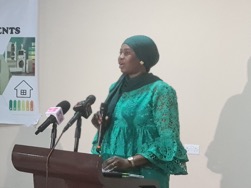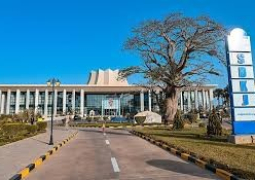
DPS Mansata was speaking on Wednesday as a local host in Bakau during a two-day national consultation workshop on the development of an enabling framework for energy efficiency organised by her ministry.
The meeting was part of the process of developing and implementing a national energy efficiency programme with support of the World Bank Group under the Public-Private Infrastructure Advisory Facility (PPIAF) and Energy Sector Management Assistance Programme (ESMAP).
“It embodies the Gambian leader’s ambition to attain universal access to energy by 2025, and also exploring low-cost options for power generation so that NAWEC becomes an efficient and financially sustainable power utility.”
She reaffirmed that scaling up energy efficiency is central to The Gambia's ambitions to provide affordable, reliable and sustainable electricity services for all.
According to her, the Ministry of Petroleum cannot do it alone given the broad sectoral dimensions, cooperation and collaboration required in achieving the measures outlined in the reports.
DPS Touray thus urged participants to fully participate in the deliberations so that the documents, upon finalisation, are fit for purpose in The Gambia.
Representative of the World Bank, Matarr Touray, revealed that through the GERMP project, the bank has supported the energy efficiency drive via a major replacement of incandescent streetlights to energy efficient LED bulbs resulting in consumption savings estimated at over 60%.
With this strategy, he said, they intend to scale their interventions in energy efficiency, adding that as a result, this strategy is part of a wider programmatic approach towards a comprehensive policy and infrastructural framework for energy efficiency in The Gambia.
According to him, the programme is divided into three pillars, noting that Pillar I revolves around the development of the NEES which was launched in July 2022 and included the identification of high-impact energy saving opportunities and associated recommendations on a robust NEES framework.
“Pillar II is the enabling framework for implementation of the Energy Efficiency Strategy, including capacity building. This is the crux of our consultation workshop today.”
In Pillar III, he said, it relates to market sizing and design support for retrofitting public sector buildings.
“This pillar aims to scope the potential size of the nascent energy efficiency market and will contribute to set the foundations to enable private sector energy efficiency investments in The Gambia.”





